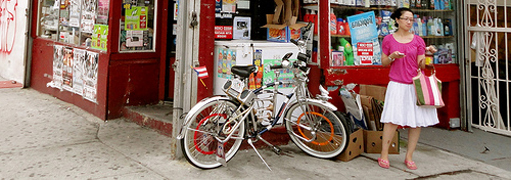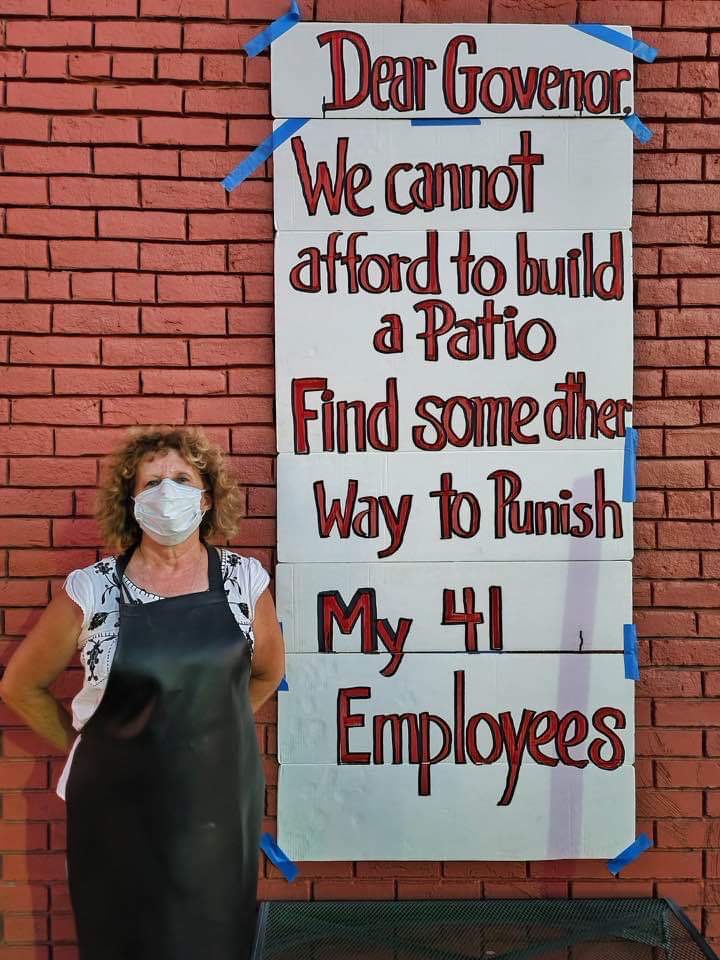James Johnson Piett digs retail—specifically, food retail. Focusing on things like "operationalizing how consumers move through a store," as he puts it, might seem prohibitively geeky. But Piett makes it seem very cool.I met Piett in Turin, Italy, at the Slow Food convention in October. "You know in that movie Pulp Fiction , how there’s this character named The Wolf who fixes things? That’s who I am,” he said, explaining his work to a roomful of food advocates. “I’m a fixer for grocery stores. I design, build, attract financing, a full suite of services to help them move from point A to point B."Piett’s company, Urbane Development, works to bring fresh produce and other healthy foods to small stores in underserved communities such as Detroit, Newark and South Philadelphia. He uses the term "bodegas" to describe the kind of integrated stores he aims to create. Bodegas tend to have more meaningful relationships with their customers, he says. One of his priorities while traveling in Europe was to study what makes European bodegas successful, in hopes of importing applicable models to the U.S."In the U.S., bodega owners that have good relationships with their customers will sometimes tape pictures of their customers’ kids to the Plexiglas by the cash register. In Europe, this kind of relationship translates into purveyors saving the last of the season’s peaches for their customers who haven’t yet made jam," Piett says.Grocers who are connected with their clients are more likely to be invested in their health. It’s a powerful relationship, considering that poor diet has been linked to diabetes, heart disease and other complications of obesity. In 2007 the American Journal of Epidemiology reported that people with no supermarket near their homes were up to 46 percent less likely to eat a healthy diet than those with more shopping options. Urbane Development contracts with cities, states, municipalities, public health agencies and developers to bring healthy food into neighborhood stores—places that usually specialize chips, soft drinks and candy. Such stores are often the only options for miles, and so they’ve become the focus of public health advocates.But in a business with such low profit margins, convincing small grocers to risk stocking perishable produce with no guarantee that customers will buy it is often a losing proposition—especially when proven sellers like Twinkies, cigarettes and lottery tickets don’t spoil.Piett’s business offers technical assistance for product sourcing, merchandising and handling. It also connects stores to lines of credit and grants. Operating capital a lifeline to grocers who might dabble in risky, healthy offerings. "It’s easier to finance hard costs, like construction and equipment, rather than perishable inventory or even insurance," Piett says. "Cash flow is king."His first client store was in Philadelphia. Even though the store added 1,000 square feet to its space, it still managed to lower power bills by 40 percent thanks to new soy-based insulation, recycled sheet rock, low-e windows, and energy-efficient refrigeration and lights.Each project is unique, and so are the different regions the client stores inhabit. Urban Detroit doesn’t have a single chain supermarket, Piett says. The only grocers willing to take a chance on the ailing city are independent operators, and there are hundreds of such neighborhood stores. Many are owned by Chaldeans, a group of Iraqi Christians that migrated here en masse in the early 1900s . "Chaldean store owners and black customers don’t always play well together," Piett says wryly. "But at the same time, they need each other." He says changes to retail space involves a high degree of integration and coordination. "It’s always in totality. If I’m going to change a corner store, I have to deal with the owner, the space, the customers, the suppliers, public health agencies, the occasional real estate developer and local economic development nonprofit, and city, state, or municipal governments."But it’s the store owners with whom he has the most direct and intimate contact. He describes trying to help one grocer display apples for sale. “I got them set up in bushel baskets, and he didn’t like that. Then we fought about the plantains. He won—he felt like his community prefers things that are packaged, so we went with it. You figure out what makes the most sense for a space, for a community," he says."My work is like therapy. You tell me what you want to do and I help you get through the clutter of your own thoughts. I want to help grocers to re-imagine their space to the point they make the most money. My belief is that a lot of those things will be healthy."Because of Piett’s brand of retail therapy, corner stores in poor neighborhoods are now becoming the only source of fresh vegetables in areas otherwise known as "food deserts." He thinks if anyone can bring foliage back to the food deserts, it’s the independent grocers. They already have much of the infrastructure they need, and they can be more flexible than the chains, which tend to have higher costs for union labor, security and real estate. President Obama has caught on to the importance of the "healthy bodegas" movement, as some people call Piett’s line of work. There’s a program initiative in his budget, yet to be funded, that would increase the healthy options available in urban markets.Piett can talk for a long time about such intricacies with nary a pause for breath. "Yeah, I guess I do dig retail. But mostly I dig the retailers themselves,” he admits. “And I like the egalitarianism of retail. You don’t have to come from an Ivy League education. You don’t have to be big. If I find a really good, honest purveyor, I know that I can get them to good food, and that I can make good food make money for them."
















